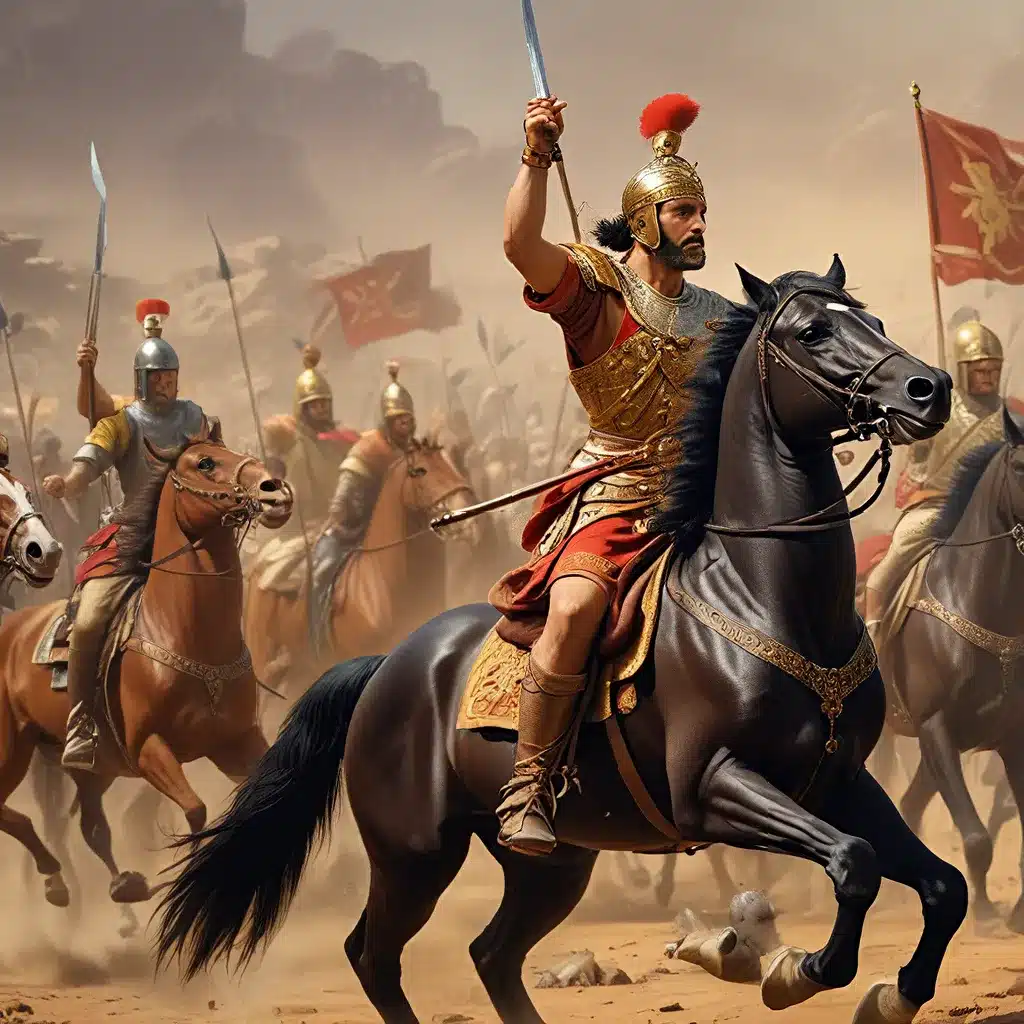
In the realm of ancient military history, the strategies and tactics employed by legendary commanders have long captivated scholars and enthusiasts alike. From the intricate maneuvers of Sun Tzu to the innovative thinking of Sun Bin, these visionary leaders have left an indelible mark on the evolution of warfare, shaping the way we understand the complexities of conflict and competition.
Insights from the Art of War
The Art of War, penned by the renowned Chinese strategist Sun Tzu over 2,500 years ago, has become a seminal text in the study of military strategy and its broader applications. This ancient work has proven influential to both ancient and modern military leaders, as well as strategic thinkers from diverse backgrounds.
Sun Tzu’s core teachings emphasize the importance of strategy, tactics, flexibility, deception, and preparation in approaching any conflict. He advises leaders to thoroughly assess their own capabilities as well as those of their enemies before engaging, with the ultimate goal of “winning without fighting” through deterrence, diplomacy, and the display of wisdom and impartiality.
One of the key principles espoused by Sun Tzu is the ability to “know your enemy and know yourself.” This fundamental understanding of both your competition and your own strengths and weaknesses is essential for effective strategic planning. Sun Tzu also emphasizes the importance of avoiding direct confrontation with an enemy’s strengths and instead attacking their weaknesses.
The Art of War further highlights the value of deception and unpredictability in military strategy, advocating the use of tactics such as “decoys, distractions, and unexpected maneuvers” to keep the enemy off-balance and confused. Additionally, the text stresses the importance of speed and preparation, emphasizing the need for swift action and pre-existing plans to seize opportunities as they arise.
The Strategic Genius of Sun Bin
Another influential figure in the annals of ancient Chinese military strategy is Sun Bin, a direct descendant of the legendary Sun Tzu. Sun Bin’s seminal work, the Sun Bin’s Art of War, is considered a significant contribution to the broader philosophical and tactical foundations of Chinese military thought.
Sun Bin’s teachings are often associated with the concept of “Chinese gaming wisdom,” which refers to the application of strategic principles derived from ancient Chinese games, such as the game of Weiqi (Go), to military and broader strategic contexts. This approach emphasizes the importance of adaptability, holistic thinking, and the ability to anticipate and exploit an opponent’s weaknesses.
One of the most renowned anecdotes from Sun Bin’s legacy is the story of the “Tian Ji’s Horse Race,” in which he outmaneuvers his rival, Pang Juan, through a clever strategy involving a covered ditch along the race course. This example illustrates Sun Bin’s strategic genius, his understanding of terrain and deception, and his ability to leverage unconventional tactics to overcome a seemingly more powerful opponent.
The Battle of Changshao, which took place in 632 BC, is another celebrated case study of Sun Bin’s military prowess. In this engagement, Sun Bin’s masterful use of terrain, deception, and preparation allowed him to outmaneuver a larger and more formidable adversary, showcasing the effectiveness of his strategic principles.
The Golden Section and the Dynamics of Strategy
In the modern era, the strategic insights of ancient Chinese military thinkers have continued to captivate scholars and military strategists. One fascinating concept that has emerged from the Unrestricted Warfare treatise, written by Chinese Air Force Colonels Qiao Liang and Wang Xiangsui, is the notion of the “Golden Section” and its application to military strategy.
The Golden Section, also known as the Golden Ratio or the Divine Proportion, is a mathematical concept that has fascinated scholars and artists for centuries due to its unique properties and prevalence in nature, art, and design. Liang and Xiangsui explore how this ratio can be applied to the realm of warfare, suggesting that the most effective strategies achieve a harmonious “balance of various elements”, including economic, technological, and psychological factors, in addition to traditional military power.
The authors also present five crucial relationships or dynamics that must be considered in the complex realm of warfare and military strategy. These relationships emphasize the importance of identifying and effectively managing the interplay between dominant or principal elements and their supporting or complementary counterparts. By recognizing these dynamics, military strategists can develop more comprehensive and effective plans, allocate resources judiciously, and create synergies that amplify the impact of their operations.
The Enduring Relevance of Ancient Military Wisdom
As the world continues to evolve, the strategic insights and principles espoused by ancient Chinese military thinkers have remained highly relevant, inspiring scholars and practitioners alike to explore their application in contemporary contexts. From Sun Tzu’s emphasis on adaptability and unconventional thinking to Sun Bin’s insights on the importance of strategic deception and terrain, these visionary leaders have left an indelible mark on the understanding of conflict and competition.
Moreover, the concept of the “Golden Section” and the “five crucial relationships” presented in the Unrestricted Warfare treatise offer a thought-provoking framework for modern military strategists and leaders to navigate the increasingly complex and multifaceted landscape of modern warfare and strategic competition.
As we delve deeper into the rich tapestry of ancient military history, the strategies and tactics employed by these legendary commanders continue to captivate and enlighten, providing valuable insights that can inform our understanding of not only warfare but also broader challenges in the realms of business, politics, and beyond. The enduring relevance of this ancient wisdom serves as a testament to the timeless nature of strategic thinking and the power of the human mind to devise innovative solutions to even the most daunting of challenges.
The Lost Kingdoms is dedicated to exploring the intricacies of ancient civilizations and the ongoing quest to uncover their secrets. Through articles like this, we aim to shed light on the remarkable achievements, cultural legacies, and strategic insights of the past, inspiring our readers to embark on their own journeys of historical discovery.


